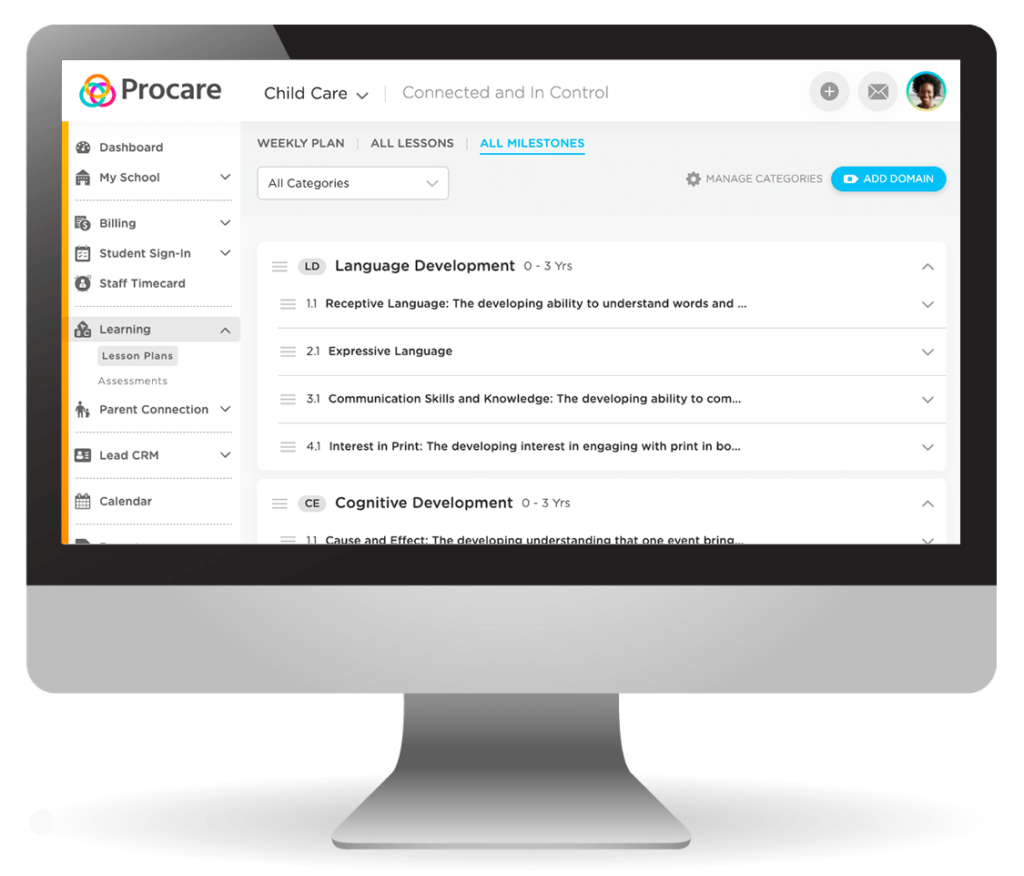
If you’re planning to start a daycare operation in the state of Texas, you’ll need to acquire the appropriate license for the type of business you want to create.
Texas child care licensing is administered by the Child Care Licensing (CCL) Division of the Texas Department of Health and Human Services (HHS). This department serves to provide for the safety and wellbeing of children enrolled in home or center-based child care by regulating compliance with state licensing standards and laws for child care operations.
This go-to guide will describe the different types of Texas child care licenses and how to determine which one is best for you. We’ll also provide step-by-step instructions for obtaining your daycare license in Texas and connect you with the most important resources you’ll need to start the licensing process.
Texas Child Care Licensing Regulations Overview
If you’re preparing to apply for a child care license, the first step is determining which type of license is right for your business. The state of Texas issues four different types of licenses for child care operations:
- Licensed Child Care Center
- Licensed Child Care Home
- Registered Child Care Home
- Listed Family Home
The nature of your child care operation will determine which child care license type is right for you and which rules you must follow to comply with Texas law. In the following table, we highlight the six types of child care operations that are eligible for licensing, their key characteristics, and which type of permit is needed for each one.
| Child Care Operation Type | Key Characteristics | Child Care License Type |
| Child Care Center | Child care centers provide care for seven or more children who are under the age of 14. They operate for at least two hours per day, three days per week, but may not provide overnight care. The center must be located somewhere other than the home of the person who will hold the license. These types of child care centers are commonly referred to as daycare centers as well. | Licensed Child Care Center |
| Before or After School Program | Before and after school programs provide care before, after, or before and after the school day and during holidays. These programs care for kids from ages three to 11. They operate for at least two hours per day, three days per week. | Licensed Child Care Center |
| School Age Program | School age programs provide care for kids from ages 3 to 11. These programs can include elements of skill development (instruction, training), recreation and supervision. They operate for at least two hours per day, three days per week, or any other time when kids are not in school. | Licensed Child Care Center |
| Licensed Child Care Home | A licensed child care home provides care in the permit holder’s own residence. This type of child care operation serves a maximum of 12 children from birth to age 13. Care must be provided for fewer than 24 hours per day, but for at least two hours per day, three days per week. | Licensed Child Care Home |
| Registered Child Care Home | A registered child care home provides care in the permit holder’s home. This type of operation provides care for at least four hours per day, three days per week, and for at least three consecutive weeks. A registered child care home provides care for a maximum of 12 children, with no more than six children unrelated to the caregiver. | Registered Child Care Home |
| Listed Family Home | In a listed family home, care is provided in the home of the permit holder to children ranging from birth to age 13. Care is provided for at least four hours per day, three or more days per week, and for at least three consecutive weeks. There should be a maximum of 12 children with no more than three children unrelated to the caregiver. | Listed Family Home |
If you plan to operate a home-based child care business in Texas, you’ll need to start the child care licensing process for home-based providers. When you are successful, you will receive a license, registration or permit to commence child care operations in your home.
If you plan to operate a center-based care program (child care center, after school program or a school-age program), you will need to apply for the Licensed Child Care Center designation.
How to Open a Daycare in Texas
Texas Child Care Licensing Regulations for Home-based Providers

Step One: Attending a Licensed Center Pre-Application Class
In Texas, candidates for in-home child care licensing are required to attend a pre-application class before filing an application. These classes are available at child care licensing offices located throughout Texas. You can get started by visiting the Texas HHS website to find a child care licensing office near you. You’ll need to contact your local office directly to find out when classes are offered and get registered.
Step Two: Understanding Texas Child Care Licensing Requirements
When you visit your local CCL office for your pre-application class, you will receive an information package with additional forms that you must complete as part of the application process. You’ll need to familiarize yourself with licensing requirements, including minimum standards, background checks, inspection requirements, application fees, municipal zoning requirements and other factors that impact the licensing process.
Step Three: Creating a Child Care Licensing Account
Before you can submit your license application, you’ll need to create an online child care regulation account. This will enable you to submit your application and related documents online.
Step Four: Submitting Your Application Online
After creating and activating your online child care account, you’ll be able to submit an online application. You’ll receive additional instructions for submitting your background checks, application fees and other related information.
After a few days, you will be contacted by a representative from the Texas CCL office who will review your application status with you, answer any questions you may have and provide you with an operation number for your child care business. Once your application is approved, this operation number will become the license number for your child care operation.
Texas Child Care Licensing for Center-based Providers

Step One: Attending a Licensed Center Pre-Application Class
If you’re planning to open a center-based care program, you’ll need to start the application process by contacting your local CCL office and planning to attend a pre-application class. Here, you will receive important information related to your application, including supplementary forms that must be submitted with your child care licensing application package.
Step Two: Understanding Texas Child Care Licensing Requirements
Child care center operators in Texas must develop a thorough understanding of child care licensing requirements and minimum operating standards to remain in compliance with the law.
Building codes, municipal zoning bylaws and liability insurance are all necessary considerations when planning to operate a center-based care facility. Applicants should also familiarize themselves with inspection requirements and minimum operating standards designed to protect the health and safety of kids under Texas law.
Applicants are encouraged to reach out to their local CCL office if they need help understanding these requirements or navigating the Texas child care licensing application process.
Step Three: Submitting Your Child Care License Application
Once you have attended a pre-application class, it’s time to prepare and submit your CCL application. The information package you received will clarify exactly which forms need to be submitted, but don’t be afraid to reach out to your local CCL representative for additional clarification. Applicants for the Licensed Child Care Center designation must submit the following forms:
- Form 2910 – Child Care Licensing Application
- Form 2911 – Child Care Licensing Governing Body/Director Designation
- Form 2948 – Plan of Operation for Licensed Child Care Operations
- Form 2985 – Affidavit for Applicants for Employment with a Licensed Child Care Operation
- Form 2760 – Controlling Person – Child Care Licensing
Step Four: Register Your Provider Account Online
Once your application has been accepted, you will be provided with an operation number for your child care center. As a final step, you will be able to create an online child care provider account that will allow you to easily submit additional forms and background checks or update information about the governance of your child care operation.
Texas Rising Stars & Other Subsidy Programs

Texas offers a program called “Texas Rising Star,” which is a voluntary, quality-based child care rating system of child care providers participating in the Texas Workforce Commission’s subsidized child care program. The program is available to Licensed Center and Licensed and Registered Child Care Home providers who meet the program’s criteria.
A Texas Rising Star (TRS) provider has an agreement to serve Texas Workforce Commission-subsidized children and that voluntarily meets requirements that exceed the State’s Minimum CCL Standards.
If you achieve TRS provider certification, that means you’re committed to offering quality care that exceeds the State’s Minimum CCL Standards for director and staff qualifications, caregiver-child interactions, age-appropriate curricula and activities, nutrition and indoor/outdoor activities, and parent involvement and education — all of which contribute to the early development of children. The idea is that as you progress through the levels of TRS provider certification, you can contribute progressively more to the development of the children you serve on a daily basis.
The Texas Rising Star program includes three levels of quality designation—2-star, 3-star and 4-star. Each star level comes with a different reimbursement level:
- 5 percent higher for a provider with a 2-star rating;
- 7 percent higher for a provider with a 3-star rating; and
- 9 percent higher for a provider with a 4-star rating.
You can learn more about the program here. You can get more information on other subsidy programs here.
Launch Your Child Care Business with Procare Solutions

Navigating the Texas child care licensing process is your first step toward opening a successful child care operation in the state – the second step is launching your child care business with Procare Solutions.
With over 30 years in the business, Procare’s child care management software has helped thousands of child care entrepreneurs market their services more effectively, automate time-consuming administrative tasks, provide the most convenient and secure payment options for parents, and maintain compliance with state minimum standards – all while cultivating a robust child care community through effective parent engagement.
Procare is here to help
If you’re looking to start a child care center in Texas, Procare can help you do it. From billing, to staffing, to attendance, and much more, we can ensure your center reaches its potential.





